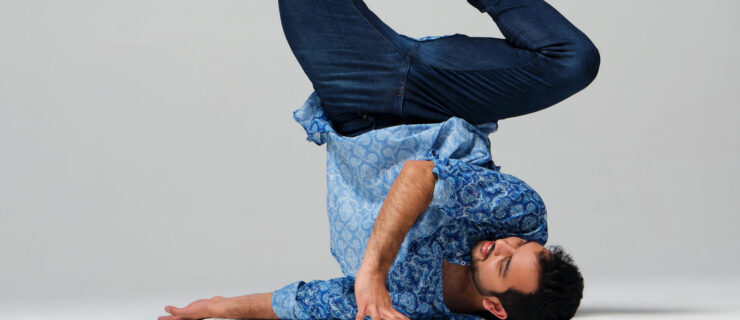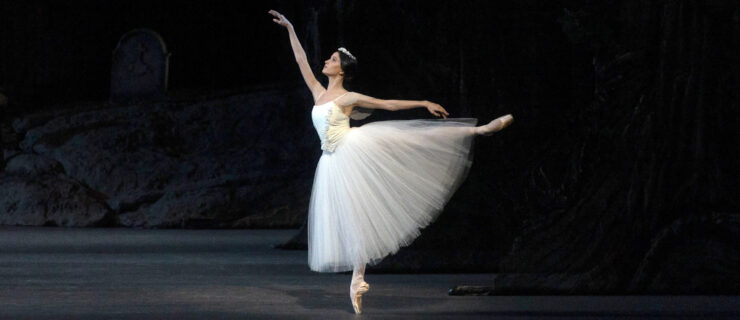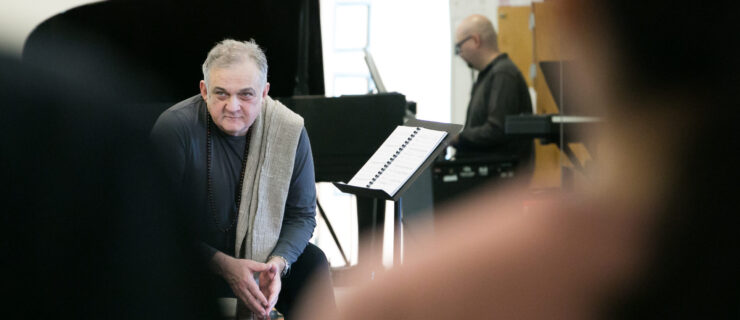5 Signs It’s Time to See a Dietitian
Dancers rely on food to fuel their bodies, and they’re ultra-attuned to how their bodies feel. So deciding what, when and how much to eat should be rather intuitive—right?
Not always. Diet culture can distort those intuitive signals, as it promotes the use of food and exercise as tools to micromanage our bodies. This rampant misinformation is at the root of the unattainable food and body ideals that saturate the dance industry. In fact, dancers are statistically three times more likely than the general population to develop a disordered relationship with food and a negative body image.
When self-proclaimed expertise is coupled with a megaphone like social media, deciphering truth from trend can be challenging. Here are the signs that it’s time to get guidance from a registered dietitian nutritionist.
A Dietitian Can Help When…
Meal planning is a challenge. Your body has varying nutrition needs during performance seasons, summer intensives, auditions and rest times. If you’re consistently low in energy or preoccupied with thoughts of food, a registered dietitian can work with you on an eating plan that supports your physical energy and mental focus.
You’re feeling stress or guilt around eating. The trend towards “wellness” and “clean”-eating lifestyles can trigger shame around foods deemed “less healthy.” A dietitian can help you reestablish a positive relationship with food.
Digestive discomfort is limiting you. Whether you’ve been diagnosed with a food allergy, intolerance or IBS, or simply experience discomfort after eating, professional guidance is critical for managing symptoms while meeting your body’s needs.
You’re struggling with an injury. Nutrients are the building blocks of recovery, playing a direct role in healing torn ligaments, reducing inflammation and rebuilding strong bones. And without a foundation of good nutrition, dancers are at higher risk of chronic overuse injuries, like stress fractures.
You often feel ravenous, or you’re rarely hungry. Appetite dysregulation is a common side effect of busy schedules—and of efforts to restrict food intake. A dietitian can help you regain your internal hunger and fullness cues and respond to your body’s natural needs for fuel.
The Red Flags of Advice
Where you get your nutrition advice matters. To ensure you get accurate guidance, watch out for these warning signs.
Your nutritionist is not a dietitian. The titles “nutritionist,” “nutrition coach” and “nutrition expert” are not regulated; as a result, anyone can use them. A licensed practitioner is a Registered Dietitian Nutritionist or a Licensed Dietitian Nutritionist (RD/RDN or LD/LDN). Dietitians complete a four-year minimum undergraduate education (with an additional two-year graduate degree required starting in 2024), 1,200-plus hours of supervised practice, a board examination and lifelong continuing education to maintain the dietetics credential.
You’re told to cut specific foods and/or food groups. Except for food allergies and intolerances, cutting out an entire food group (yes, this includes dairy and sugar) can negatively impact your relationship with it—and deprive you of crucial nutrients and enjoyment of eating.
You’re given rigid rules. Only allowed to take a few bites of dessert? Told to stop eating after a certain time of day? These rules could be a guise for restrictive eating habits that can undermine your relationship with food.
You’re guaranteed a specific weight target. A healthy eating plan is not about achieving an arbitrary number on the scale, it’s about supporting the sustainability of your career. So if someone guarantees a specific weight goal that requires food restrictions, reconsider their advice—and your goal.
Supplements are prioritized over food. While supplements can help fill gaps in a dancer’s diet, a food-first approach should be your starting point. The dietary supplement industry is also largely unregulated, so without the advice of a dietitian, you could spend a lot of money on something that is unnecessary or even dangerous.





